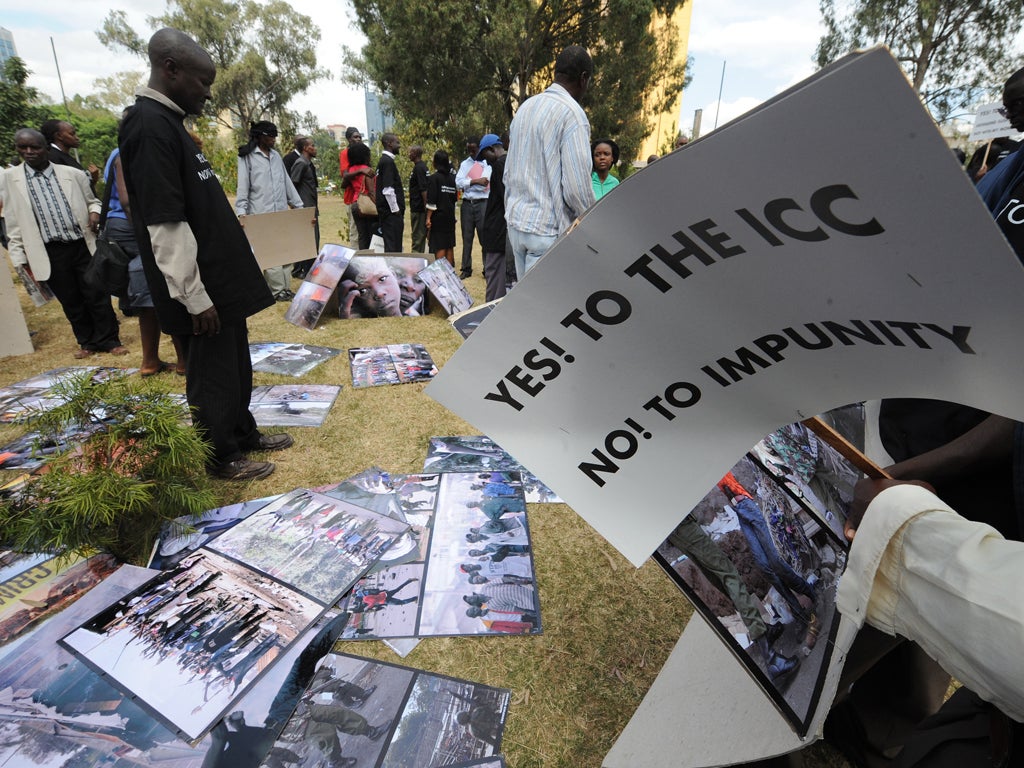A country defined by equality, not ethnicity; and a plan to defeat HIV/Aids: my vision for Kenya
In an exclusive column for Independent Voices, Africa's first openly gay black politician explains why he is running for a seat in his country's Senate

Your support helps us to tell the story
From reproductive rights to climate change to Big Tech, The Independent is on the ground when the story is developing. Whether it's investigating the financials of Elon Musk's pro-Trump PAC or producing our latest documentary, 'The A Word', which shines a light on the American women fighting for reproductive rights, we know how important it is to parse out the facts from the messaging.
At such a critical moment in US history, we need reporters on the ground. Your donation allows us to keep sending journalists to speak to both sides of the story.
The Independent is trusted by Americans across the entire political spectrum. And unlike many other quality news outlets, we choose not to lock Americans out of our reporting and analysis with paywalls. We believe quality journalism should be available to everyone, paid for by those who can afford it.
Your support makes all the difference.My decision to put myself forward as a candidate for Senator for my community of Kiambu just outside Nairobi has attracted global attention as well as stirring up controversy at home. Inevitably the fact that I am the first openly gay black person to run for national office in Africa’s history has attracted plenty of comment, but there is a lot more to my candidacy than that.
There are five main reasons that have motivated me to get into politics.
The first is because I believe I have skill and talent to give to the people of Kenya. We are a country where more than half the population live below the poverty line, yet we are also endowed with enormous natural resources. One reason for this poverty is the corruption and egocentricity that characterises our political class. We need a new crop of leaders that will commit themselves wholly to the service of common good.
The second reason is because we need to change the basis of our politics from ethnicity to a focus on issues and ideological persuasions. In developed democracies, two main persuasions of conservatism and liberalism/progressivism usually characterise the political debate. In Kenya political parties have very similar manifestos and rarely give much reflection to issue-based campaigning. Because of the controversial nature of my candidature, I am able to point out the paucity of competition on the basis of ideas rather than personalities. Kenyans are listening and most are in agreement with me on this.
The third motivation is the vitally important issue of HIV/AIDS prevention, treatment and care. Kenya’s new HIV infections are approximately 120,000 each year - with a population of only 40 million; while the whole of Europe has less than 28,000 with a population close to 400 million. As a campaigner, I came to realise we cannot win the war on HIV/AIDS unless we also address the structural barriers behind those figures. Somebody needed to come out and speak about these issues strongly enough, and since there is no one on the political scene doing it, I figured it had better be me.
The fourth reason is that I believe I have a credible programme of change for Kiambu. Our county has enormous potential for economic growth and the elimination of poverty among our people. But the current political leadership has no clue how to use these advantages to benefit the wider population. In my campaign, I propose to use the “cluster model” of development by attracting anchor industries to Kiambu. For example, we can use easily accessible business ventures such as rabbit farming, but integrating the entire value chain from the farm to the market. Given my academic and professional training in business and finance, I hope to use those skills to work with communities to turn around their economic prospects.
Lastly but just as important is the need to advance equality and non-discrimination. Poverty and disease are more entrenched in those societies which exclude significant members of that society from the mainstream. It tends not to matter whether the basis of discrimination and exclusion is because of gender, ethnicity or any other such odious grounds. My candidature not only provokes questions about whether I have a right in an African country to seek an elective position, but it also provides the opportunity to discuss all forms of social exclusion including sexual orientation.
Besides generating debates on equality issues, I have registered a Foundation – the Kuria Foundation for Social Enterprise - www.kuriafoundation.org, which will support individuals and communities struggling for equality in the Kenyan mainstream - regardless of the basis of their social exclusion. Since my candidature brings with it both high visibility and significant vitriol, I hope to elicit understanding and support for all the people excluded on account of factors over which they have no control. I hope then to use this visibility to bring attention and hopefully funding to initiatives that provide a bridge for individuals and communities, from where they are now to the social and political mainstream - if this happens, then the abuse and prejudice I have to shoulder personally will be well worth the effort.
David Kuria Mbote is visiting London for a week from October 15 as the guest of the Kaleidoscope Diversity Trust. For the chance to meet him and hear him speak please visit www.kaleidoscopetrust.com
Join our commenting forum
Join thought-provoking conversations, follow other Independent readers and see their replies
Comments